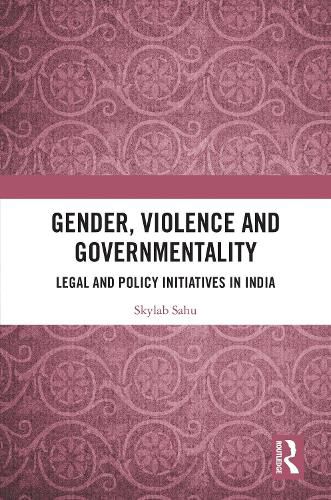Readings Newsletter
Become a Readings Member to make your shopping experience even easier.
Sign in or sign up for free!
You’re not far away from qualifying for FREE standard shipping within Australia
You’ve qualified for FREE standard shipping within Australia
The cart is loading…






This book critically examines gender-based violence in India and interrogates the legal and policy discourse surrounding it. It discusses various forms of violence faced by women such as sex selective abortion, trafficking, rape, domestic violence, as well as the violence faced by female sex workers and transgenders in India. It draws on in-depth interviews and case studies to highlight the socio-economic conditions of the survivors who find themselves forced to contend with legal and policy framework that is inadequate to deal with these issues. The author analyses the major laws against violence and the policies introduced to ameliorate the condition of survivors in order to understand the potential and challenges of these initiatives from a postmodern and feminist perspective. The book also addresses the survivors' realisation of agency and resistance which is seen to be expressed both sporadically and on day-to-day basis.
An important and timely contribution, this book will be indispensable to students and researchers of gender and sexuality, feminism, minority studies, sociology and social policy, politics, law, human rights and South Asian studies. It will also be of interest to policymakers, government agencies, think tanks and NGOs working in the area.
$9.00 standard shipping within Australia
FREE standard shipping within Australia for orders over $100.00
Express & International shipping calculated at checkout
This book critically examines gender-based violence in India and interrogates the legal and policy discourse surrounding it. It discusses various forms of violence faced by women such as sex selective abortion, trafficking, rape, domestic violence, as well as the violence faced by female sex workers and transgenders in India. It draws on in-depth interviews and case studies to highlight the socio-economic conditions of the survivors who find themselves forced to contend with legal and policy framework that is inadequate to deal with these issues. The author analyses the major laws against violence and the policies introduced to ameliorate the condition of survivors in order to understand the potential and challenges of these initiatives from a postmodern and feminist perspective. The book also addresses the survivors' realisation of agency and resistance which is seen to be expressed both sporadically and on day-to-day basis.
An important and timely contribution, this book will be indispensable to students and researchers of gender and sexuality, feminism, minority studies, sociology and social policy, politics, law, human rights and South Asian studies. It will also be of interest to policymakers, government agencies, think tanks and NGOs working in the area.